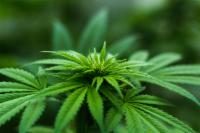 On October 17, 2018, the Trudeau government decriminalized marijuana. The mainstream media rejoiced, claiming, without any scientific evidence, but with remarkable confidence, that marijuana was safer than alcohol, was not addictive, or harmful to health. The media celebrated that, at last, the myths surrounding marijuana had been dissolved.
On October 17, 2018, the Trudeau government decriminalized marijuana. The mainstream media rejoiced, claiming, without any scientific evidence, but with remarkable confidence, that marijuana was safer than alcohol, was not addictive, or harmful to health. The media celebrated that, at last, the myths surrounding marijuana had been dissolved.
The media narrative was supported by multinational corporate interests whose only concern was profit. These corporate interests lobbied against any restriction on the amount of THC (the intoxicating component in the drug), but were not successful in this regard. Presently in Canada, legally sold edibles such as Gummy Bears and Brownies, as well as smoked marijuana are limited to 10% THC.
Reputable Research on Marijuana
Since marijuana’s decriminalization, many reputable institutions have been researching the drug and are finding some alarming results. The institutions conducting this research include the Canadian Department of Health, Harvard University, the American Board of Pain Medicine, Columbia University, and New York School of Medicine.
This research has disclosed that marijuana, far from being harmless, is quite the opposite. For example, problems caused by marijuana include depression, suicidal thoughts, high anxiety, and addiction, (between 10% and 30% of marijuana users become addicted). Memory loss, poor executive decision skills, diminished ability to learn and retain information, lowered IQ, severe vomiting, and fetal development impairment are also caused by marijuana use. The Canadian Department of Health Science Advisory Committee has warned pregnant and nursing mothers against marijuana use. Increased risk of heart attacks, lung damage, and shorter life expectancy can also result from marijuana use.
Black Market Flourishing
When Justin Trudeau legalized marijuana he claimed that one of its objectives was to curb the illicit market or black market sales of marijuana. This has not happened. The federal Financial Transactions Centre (FINTRAC), which is responsible for implementing the “Proceeds of Crime and Terrorist Financing Act”, issued a report, in February 2022, stating that the market for illicit marijuana continues to exist and is flourishing. It estimated that at least 37% of marijuana sold to Canadians is purchased on the black market. It is significant, however, that Statistics Canada states that the black market contributes 43% to the marijuana sales. Despite this discrepancy in the amount of black market sales, it is clear that the black market has continued to flourish after decriminalization. The FINTRAC report stated that illegal sales have resulted in the increased funding of criminal activity for crime groups, as well as decreasing tax revenue for the government.
Further, FINTRAC states that illegal marijuana is being sold through front companies from a wide range of businesses laundering proceeds of illicit sales. It gave examples of e-commerce businesses in the beauty and wellness industry, food and beverage wholesalers, automotive-related businesses, electronic repair businesses, and construction related businesses. Often, there were little or no other business-related transactions in the accounts of these front companies. The Department of Justice cheerfully stated, however, that “full transition to the new market will take time before licensed dealers can compete with the drug dealers”.
Federal Panel on Marijuana
The 2018 legislation decriminalizing marijuana provided that the federal government review the impact of the legislation within three years after its enactment. Four months past the deadline, the Liberal government finally established the panel, in February 2022.
Liberal Government will be Unmoved by Recommendations of the Panel and the Harms Caused by Marijuana
Regardless of any recommendation from the federal marijuana panel, it is likely the Trudeau government will ignore them. It will not revoke or amend the legislation for the following two reasons:
- Government Profits from Marijuana Sales:
The Trudeau government will not likely limit the sales of marijuana because, even with the presence of the black market, the government is still making huge profits on the sale of marijuana. According to a comprehensive report released on February 1, 2022, by Deloitte Canada, between legalization in October 2018 and 2021, Canada’s marijuana industry contributed $43.5 billion to the economy. This sum included $15 billion in taxes for the government, increased consumer spending, as well as the employment of 43,479 people, and capital expenditures provided by the production and sale of marijuana. Statistics Canada reported sales of marijuana in June 2022 jumped 23% over the same month last year. Simply put, the contribution to the economy by the marijuana industry is a large source of money for both the government and the economy.
This increasing use of marijuana is attributed to the fact that the threshold to marijuana use and its effects must be maintained by more frequent consumption, and that the easy availability of the drug increases its consumption.
- Government wants to keep “progressive” voters on side:
The Liberal government will not limit sales, despite the harms caused by its use, because of its desire to keep the “progressive” voters on side. The Trudeau government’s voter support comes mainly from left and left-of-centre voters, i.e. the woke, progressive voters who regard marijuana use as reasonable and an acceptable lifestyle choice. The Liberal government does not want to risk losing these votes, and so will be unlikely to restrict the sale of marijuana in Canada.
Canadians will have to wait for a saner, more responsible government to be elected in order to restrict the use of this harmful drug.
